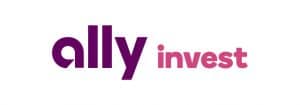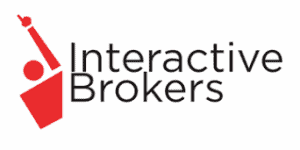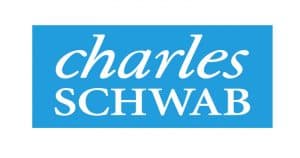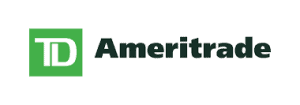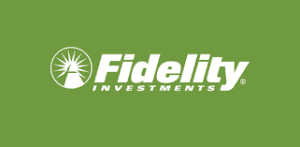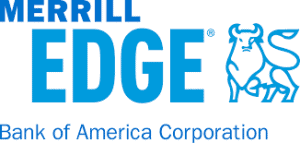Are you constantly executing trades and are on the lookout for an affordable brokerage service that gives you more control over your investments? Then you are better off dealing with a discount broker instead of a stockbroker. The primary difference between these two is that discount brokers charges fees and don’t eat into your profits and neither is their support team always on your neck selling to you different stocks or constantly pushing you into making more investments.
The cost of service plays a key role in influencing a trader’s choice of a stockbroker. We are however of the opinion that every stock and equities markets trader should strive to look beyond affordability when vetting different discount brokers. Furthermore, most of these have their per-transaction around the same price level, between $0 and $7.
We set out on a mission of uncovering the different features that make the discount brokers unique while checking whether they are good enough to make you want to register an account with them and came up with what we consider the best 7 discount brokers for the year. But first, we seek to understand who a discount trader is.
On this Page:
Criteria used to rate these discount brokers
Our first area of concern was, obviously, the cost of trade by these brokers. We would then follow this up by checking any other feature that eases your interaction with the broker and affects how much you earn from your investments. Some of the factors we gave the highest consideration included:
- Availability and professionalism of research tools
- Minimum deposit or operating balance
- Customer service
- Versatility – availability of such trading platforms as mobile
- User-friendliness
- Offers and promotions
On this Page:
Best Discount brokers 2019

1. CryptoRocket
CryptoRocket is a CFD broker that offers access to a vast range of stocks and other asset classes to trade. If you are interested in stock trading but you are worried about the high cost of traditional trading and also the cost of data/quotes, you should consider CryptoRocket as your goto option.
It is important to mention that this firm is currently not available in the US, but it has become a major force in Europe and also in Australia.
Instead of following a traditional path and developing its own platform, this firm decided to partner with one of the very best trading software in the market, Metaquotes. With CryptoRocket you will be trading with one of the best and most recognizable platforms in the world.
For more information about this CryptoRocket you can read our Full Review.
Pros and cons
- MT4 and WebTrader available
- High Leverage of up to 1:500
- No transaction and deposit fees
- Professional and valid customer support services
- Highly secure trading platform
- Limited Deposit Methods
2. Ally Invest
Ally Invest tops our list as the overall best broker for 2019, in the category of discount brokers because of its robust yet simplistic trading platform, low fees and a wide range of free analytical tools. Trading fees at Aly Invest, formerly known as TradeKing, start from as little as $4.95 per trade with the added advantage of volume discounts for active volume traders. We also consider it one of the most beginner friendly brokers in view of the level of guidance and research materials provided on their website. Plus the fact that you don’t need a minimum initial deposit or operating balance to maintain a trading account here.
You also don’t have to worry about annual and maintenance fees while maintaining an account here. More importantly, high volume and high deposit traders are treated to a further $1 discount where their trades are processed at $3.95 per trade. To get here, you must process daily orders worth $100,000+. More importantly, you stand a chance to win up to $3,500 cash as a trading bonus and commission-free trades for 90 days when you open a trading account with the broker
Research tools and assistance
Naturally, discount brokers do not offer trading advice, but we consider the informational resources and analytical tools availed by Ally Invest more than enough to help you make informed trading decisions. And it starts with the broker’s user-friendly interface that gives you access to market quotes in real time. The broker has also established the Ally Invest trading community from whence novice traders can interact, get mentored, and receive feedback on their strategies.
Pros and cons
Pros
- Maintain a strong web-based trader platform
- A wide array of research and analytical tools integrated into the platform
- Dedicated customer support team
Cons
- No physical locations or ATMs – purely online
- Imposes a fee on mutual funds
3. E*TRADE
While you might consider their $6.95 charge per trade relatively high, we still had to include E*TRADE on the list of top discount traders for its numerous offers and frequent deposits bonuses that end up pulling this initial figure down. For instance, frequent traders who successfully execute more than 30 trades per quota have their per-trade fees dropped to $4.95. They are also currently running a promotional offer where new traders stand a chance to be awarded 500 commission-free trades. We were also drawn to their three-part trading platform and their wealth of tools and resources.
Different platforms
Ideally, all their trading account holders start at the intermediate level where they have access to the basic E-trade platform. Key features here include dedicated customer support, real-time market quotes, and charts with integrated professional analysis tools.
Every active trader also has access to the broker’s Open-house platform that contains more advanced charting and analysis tools. As you get the hack of the broker’s system and increase your volume of trade to 30 per quota and minimum operating balance at $500, you gain access to the E-Trade Pro, a social trading platform where investors get to interact and share investment ideas.
Pros and cons
- No minimum balance for retirement accounts
- a user-friendly platform dashboard
- Expansive use of trading tools
- High transaction fee discourages high volume traders
- One might consider the $500 deposit prohibitive
4. Interactive Brokers
Interactive Brokers was specifically designed to cater to the needs of high volume day traders and maintain some of the lowest discount brokerage fees. These start from $0.005 per share for standard trades and require no minimum initial deposit. Margin rates are on a graduated scale starting from 3.68% and reaching the lows of 2.68% for traders who maintain over $1 million with the broker. In essence, the Interactive Broker platform is intentionally biased towards high volume traders like professional traders and institutions.
Features and account operation
We also laud the level of sophistication employed by the interactive broker in designing their platform. It isn’t just user-friendly but is also infused with several highly customizable analytical tools and research features that they claim were designed to help their pro traders make split-second decisions in reaction to the ever-changing markets. These include programmable hot keys and proper risk management tools. The broker’s platform also supports the integration of expert advisors.
Pros and cons
- Low transaction rates make it suitable for high volume traders
- Provision of advanced trading and analytics tools
- Support expert advisor
- Their graduated pricing scale is quite complicated
- Little emphasis on research and client education
5. Charles Schwab
Low fees, the integration of technologically advanced trading tools, and a reputation of dedicated customer support informed our decision to include Charles Schwab into our list of best discount brokers. The trading fee here starts at $4.95 per trade and with no minimum initial deposit or account operating balance.
Apart from offering traders direct access to real-time market quotes, the broker also takes pride in maintaining one of the widest ranges of investment options. We were particularly drawn in by the fact that the discount broker offers an expansive range of commission-free ETFs and mutual funds. Promotions here include a $100 cash tradeable bonus for new accounts with qualifying deposits.
Versatility
Charles Schwab brokers have invested a lot of time and resources in advancing their system technologies. They would start by integrating several high-tech analytic tools within their system that they then made available in both the desktop platform and mobile app. On either platform, you can Buy and Sell securities and manage all your different accounts.
The broker is also committed to the advancement of stock trading knowledge and helping their clients master these concepts. They have in effect developed one of the most comprehensive research platform that offers guidance in the form of rating and reviews for the different investment vehicles.
Pros and cons
- Diversified trading platforms: mobile and desktop
- Dedicated customer support team
- Doesn’t impose inactivity fees on dormant accounts
- Charges transaction fee for mutual funds
6. TD Ameritrade
TD Ameritrade also makes it to our list of top discount brokers with their relatively high $6.95 per trade fee. The high fee broker makes it here in respect to the fact that the broker doesn’t demand a minimum initial deposit or operating balance. More importantly, while most brokers charge a fee or set punitive trading requirement that one must fulfill before accessing their elite trading platforms, TD Ameritrade allows free access to their premium ThinkorSwim trading platform, further proving why we consider the $6.95 charge reasonable.
ThinkorSwim explained
The Thinkorswim platform is considered a pioneer in the field of premium trades and social trading. It contains the largest pool of trading education materials in the form of guides and instructional videos designed to help both the novice and fairly experienced traders learn how to interact with the platform, the analytical tools therein and how to use this knowledge to their advantage. We also liked their dedicated customer support team available 24/7 on phone and online as well their ongoing promotion where they treat new traders with commission-free trades for 60 days.
Pros and cons
- Extensive range of investment options to choose from
- Emphasis on research and client training and education
- Technologically advanced and all-inclusive trading platform
- One may consider the $6.95 trader fee expensive
- Not friendly to high volume day traders
7. Fidelity Investments
We also consider Fidelity Investments one of the best discount brokers of all time not just because of their low trading fees that starts from $4.95 with no minimum balance but also because of the solid reputation they have built over the years. A reputation that revolves around dedicated customer service that is easily accessible on multiple platforms online as well as on phone 24/7. We also liked the level of detail and technology they put in developing what we consider one of the most extensive research platforms in the discount brokerage market today.
Research and ease of use
Going through the different reviews online about Fidelity Investment, one thing stands out, the level of praise dedicated to their platform’s ease of use. Fidelity investment’s highly versatile and customizable platform is available in both the desktop and mobile app platforms. More importantly, Fidelity Investment’s research tool furnish you with several third-party reports relating to every trade quote to pull in a bid to help you make more informed decisions.
In addition to these reports, both beginner and fairly experienced traders on the broker’s platform have access to market research and screeners to help guide their investment paths.
Pros and cons
- A large pool of investment resources to choose from
- Low fees make it friendly for high volume professional and day traders
- Transparent pricing model
- A limited number of analytical tools on the platform
8. Merrill Edge
With their standard $6.95 fee for stock trades, Merrill Edge makes it to our list of top discount brokers primarily due to their diversified trading options for both DIY and managed accounts as well as their attractive discounts and promotions. The discount broker was acquired together with its parent company Merrill Lynch bank after the 2008 financial crisis by the Bank of America. The bank has since used the broker’s platform as the launching pad for most discounts, offers, and promotions, to the benefits of traders, particularly those who double up as the Bank of America clients.
Attractive perks and managed accounts
Merrill Edge broker clients who also maintain Bank of America accounts benefit from interest rate boosts on their accounts. The banker has also waived the annual and maintenance fees for accounts hosted with their discount broker and also eliminated the minimum operating balance. More importantly, they have introduced the managed investment portfolio service where they connect you up with an expert trader who helps manage your investments. You will nonetheless need a minimum deposit $5000 and agree to a 0.45% management fee.
Pros and cons
- Beginner friendly trading tools
- Dedicated customer service
- Transparency pricing and discount system
- One might consider the managed accounts fees prohibitive
- Not friendly to low volume traders
What to look for when deciding on a discount broker
The interests on savings are laughable with most even charging you, to keep and use your money, in the name of operating and maintenance costs. This has seen individuals turn to more profitable ways of earning from their savings. And as most turn to the cost-friendly discount brokers, it has created a fierce competition among these brokers, each trying to outdo the other. The result?Birth of the most ideal investment conditions. But as more discount brokers push ads to your face, how do you go about deciding on the best for your investments?
1. Confirm their commissions for different investments
Every discount broker has countless investment options they present to their clients and they all attract different per-trade charges. A broker may, therefore, come off as offering lowest trade costs in one type of investment, say incredibly low transaction costs for bonds and ETFs but overcharging the other, say individual stocks or options. If you are looking for a discount broker with low fees, don’t just look at the products on their banner, vet the transaction costs for the investments you are likely to engage with most.
2. Go through the fine print for hidden charges
Rogue discount brokers are known for sneaking in extra charge clauses in their fine print and introducing them at the most inconveniencing times. For instance, have you confirmed whether your low-cost broker charges deposit and withdrawal fees? And if they do, are they standardized for all the payment processing service providers such online wallets as PayPal, bank transfer, and debit card loading? If they did not disclose this when you were signing up, it is probably buried in a clause within terms and conditions. But who reads that?
3. Does the broker match your trading style
Do you wish to day trade or buy and hold? And how are your broker’s systems and technology adapted to this trading style? Ideally, scalping friendly brokers will often lower the per-trade fees for high volume traders. Alley invest, for instance, lowers per trade fee by $1 to $3.95 if you trade more than 100,000 daily while E*TRADE lowers it by $2 to $4.95 for similar transactions. Position trading-friendly companies, on the other hand, don’t impose overnight charges.
4. What is the minimum deposit amounts
Both TD Ameritrade and Merrill Edge have no minimum initial deposit or operating balances. You will, however, have to match your account balances to the level of your interested investment’s required minimum. It is not enough to look at the minimum operating balance required by the broker, you also have to consider the minimum amounts required for the investment you are interested in most.
5. Are you eligible for their promotions and offers
Almost every broker is offering promotions and trade discounts ranging from a tradeable cash bonus to commission-free trades. These are mostly given to new traders. There is a caveat though,you will have to first top up your account with the ‘qualifying minimum.’ Before choosing a broker for their 500 commission-free trades, check whether you can afford their qualifying minimum and such attached conditions as no withdrawals for a specific period of time.
6. Broker reputation
The last thing you need is committing your funds to a broker that has no regard for their clients. Therefore, even though a broker promises the lowest transaction costs, has no hidden charges, and has all the necessary premium analytical tools integrated into their system, don’t trust them with your money if they are of ill-repute. You can check their reviews from verified clients on such popular review sites as the Better Business Bureau (BBB).
Bottom line
By ignoring the full-service brokers and going after discount brokers, it is only fair that you want value for your money. The last thing you therefore need is lack of transparency on the part of your preferred discount broker in pricing and introducing numerous hidden charges in the name of annual, maintenance, and inactivity fees. Furthermore, and in this age of technological evolution and digitization, you need a broker that takes advantage of this technology maximally.
We, therefore, ensured that all the brokers on our list have the most transparent pricing guides. We are also technology crusaders and only included discount brokers that have shown great effort in embracing technology by way of fulfilling orders at the current market rate, integrating high-tech analysis tools into their systems, and availing them on such versatile platforms as mobile and web-trader.
FAQs
How do I start trading with a discount broker?
Go through our list of discount brokers and choose that which appeals most to you. Head out to their website and click on create account or register. In most cases, they will require your name, email address and such other identification documents like your driving license, SSN, and phone number. Fund your account and you are ready to go.
How is the Discount broker different from a full-service broker?
Full-service brokers charge high trading fees, sometimes in excess of $100+ per trade, for investment guidance and portfolio management. Discount brokers on the hand charge less (some even offer free trades) but will not offer guidance on your investments or help manage your accounts. You are responsible for your investments and trades and extra help may incur additional charges.
How much will the discount trader charge?
There are no standardized charges for discount brokers and they can exercise their discretion in determining their trading fees. It, however, ranges from $0 to $10+. In this guide, we cover both affordable brokers (Alternative Brokers charging $0.005) and relatively expensive brokers (charging $6.95).
Are there additional fees by discount brokers that I should be aware of?
Yes. There are numerous trading and non-trading fees imposed by different discount brokers. These include annual and maintenance fees charged for hosting your account on their servers, the closing and transfer fees charged when you chose to close your trading account or seek to transfer funds therein to another account or broker, as well as the inactivity fee charged on dormant accounts or ones that don’t hit the required number of trades. Go through your preferred fine print checking whether they apply any or a combination of these fees.
Must I use these brokers when trading online?
No. Investing in the stock and equity markets through a broker is quite popular, but it isn’t the only option. You can decide to invest directly in a company’s direct investment plan. This is, however, quite complicated and not open to all publicly traded companies.
What product and services can I trade via a discount broker?
Some of the products that you can invest in through a discount broker include stocks, ETFs, Mutual funds, Federal, state and corporate bonds, options and Certificates of deposits.
Can I trade these products and services for free?
Yes. Some discount brokers allow for the execution of free trades with such caveats as a maintaining a given minimum account balance or executing a given number of trades a day. For short-term free trades, you can take advantage of the offers and promotions given by the different discount brokers. E TRADE, for instance, gives traders up to 500 free trades to be used within two years.
Is there a minimum trading amount to trade with a discount broker?
No. Your preferred broker is at liberty to set the minimum deposit required for the different types of accounts hosted on their service. In our review, we were biased towards brokers that demand near zero deposits and operating minimums as we find them more attractive to beginners.

